
Thirty years or more? You probably remember your veterinarian “floating your horse’s teeth” with a bucket of water and couple of hand files that he used to smooth down sharp points. Your vet kept your horse’s mouth open by pulling your horse’s tongue to the side. If that didn’t work, your vet might have slipped a small metal device between the molars on one side that prevented your horse from biting down. Most horses tolerated the procedure without sedation.
Twenty years? “Floating” rapidly became “dental balancing,” complete with power tools and a large metal speculum in your horse’s mouth to hold it open. Major adjustments were made to your horse’s bite that often involved cutting down the incisors (front teeth) to improve the contact of the molars (back teeth). This procedure was often necessary due to the amount of tooth removed from the surface of the molars. Sedation was almost always necessary. Because many vets weren’t comfortable with this type of dental care, “lay dentists” became popular and often traveled from town to town or even state to state to perform dental work.
Ten years or less? The pendulum has swung back after veterinarians began to recognize the severe tooth damage that resulted from overly aggressive dental work. Power tools and a full-mouth speculum are still the norm—along with routine use of dental mirrors or even a specially designed oral endoscope that allow your vet to perform a thorough and detailed examination. Skilled dental practitioners avoid excessive tooth removal and damage. Sedation is still almost always necessary for a thorough dental exam and treatment—and dental expertise is a huge component of many veterinarians’ training.
Esta historia es de la edición Spring 2020 de Horse and Rider.
Comience su prueba gratuita de Magzter GOLD de 7 días para acceder a miles de historias premium seleccionadas y a más de 9,000 revistas y periódicos.
Ya eres suscriptor ? Conectar
Esta historia es de la edición Spring 2020 de Horse and Rider.
Comience su prueba gratuita de Magzter GOLD de 7 días para acceder a miles de historias premium seleccionadas y a más de 9,000 revistas y periódicos.
Ya eres suscriptor? Conectar
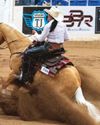
The Horse
LIFE TAKES US DOWN different paths, but I seem to be on just one, which is with the horse.
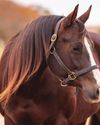
Decoding the Diseases Examined by AQHA's Six-Panel Test
The six-panel test is a diagnostic tool used to assess the genetic predispositions of horses. It's meant to discover if a horse has or is a carrier for certain hereditary diseases and traits.
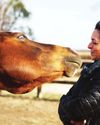
Love is Good
All horses are assured a hopeful, compassionate plan of care at This Old Horse, a program that helps not only horses but people, too.

HORSE PACKING 101
Take your trail riding to the next level with nature-filled adventures in the back or front country.
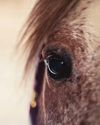
NEW HORSE; NEW PROBLEMS
Anew horse can bring excitement and energy to the barn, and even reinvigorate your passion. However, there are also a myriad of new problems that can come with a new horse, so learn how to introduce him properly to avoid these common issues.
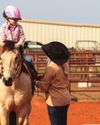
First-Timer Tips
Heading to a young rider's first event with their horse can be intimidating. Use these myths and truths to make it smoother sailing for yourself and your young rider.
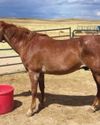
Re-Rescued: Aslan's Story
One special gelding learns about three different types of love during his rescue journey.
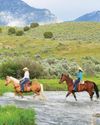
The Country's Hottest Horse Motels
Take your next trail-riding adventure to the next level by staying at one of these six horse motels across the United States.
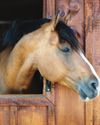
Outbreak! What We've Learned
Learn how disease outbreaks in recent years have changed the horse industry, and why it's so important to play your part when it comes to disease prevention efforts.
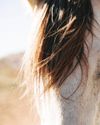
TRAINING THE SENSITIVE HORSE
Shift your mindset and grow your sensitive horse's pressure-handling skills to improve his confidence and your riding enjoyment.